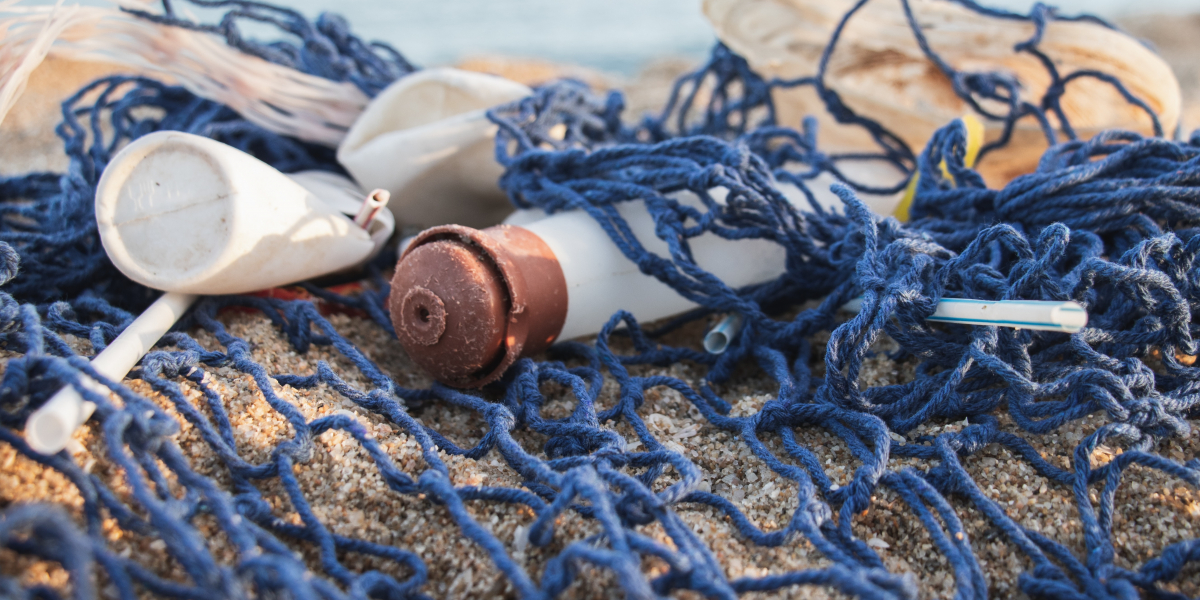
June 5, 2020
By Simon Beaudoin
Plastic pollution in marine habitats is a growing concern in Canada and worldwide, and it calls for actions, solutions, and cooperation stretching across individual country borders. At the crossroads of the natural and social sciences, a growing number of researchers, activists and policy makers are mobilizing efforts to address this pressing issue. By developing innovative frameworks and action plans, they provide key knowledge to inform management policies and contribute to the development of solutions to address the challenges posed by plastic pollution in the World Ocean. (The term World Ocean is increasingly used in this field to attest to the interconnection between and the unity of all the rivers, seas, and oceans of the world.)
The annual Sustainability and Development Conference hosted by the University of Michigan brings together researchers, academics and practitioners to bridge theory and practice in support of significant action towards sustainability. To address some of the most pressing issues faced by present and future generations, it supports the ongoing global discussion on how we can achieve the 17 Sustainable Development Goals by 2030. It is in this context that I presented my research on Solutions for the World Ocean.
By studying the global mobilization to address plastic pollution in the World Ocean, students can highlight the vital role of transdisciplinary and transnational approaches in bridging spaces, theories, and communities of practices. Indeed, as an integral part of the 14th Sustainable Development Goal (i.e. conserve and sustainably use the oceans, seas and marine resources for sustainable development), plastic pollution in the World Ocean is a case that highlights planetary interconnectedness and the necessity for beyond-borders cooperation. The current state of knowledge on the issue underlines significant gaps between research and theory on the one hand, and practical policies and implementation on the other.
Growing momentum in ocean science is now building on multidisciplinary contributions from both natural and social sciences to support policies and actions. For instance, the First Global Integrated Marine Assessment was published in 2016 as an outcome of the United Nations Regular Process for Global Reporting and Assessment of the State of the Marine Environment. The second assessment is expected to be published by the end of 2020. Furthermore, the Global Ocean Science Report was published in 2017 by the Intergovernmental Oceanographic Organization to assess the Current Status of Ocean Science around the World. As a result of the growing awareness of the role of the World Ocean for the global environment and livelihood of future generations, the UN declared 2021-2030 the Decade of Ocean Science for Sustainable Development and the Decade for Ecosystem Restoration. This growing momentum in the ocean sciences is producing a rapidly increasing number of research projects focusing on plastic pollution in the World Ocean, and fostering the development of innovative solutions.
The transboundary character of the issue calls for multi-scale solutions, from adapted global governance institutions to local initiatives that take into account the interconnections between in-land and coastal environment together with individual choices and global outcomes.
Discussions at past Sustainability and Development Conferences have encouraged global partnerships, as they can provide vital solutions. It is now widely accepted that end-of-pipe actions are required, such as coastal, shore, and beach cleanups. However, this needs to be combined with innovations in waste management innovations, as well as a reduction in the production of plastics, by designing alternative eco-friendly materials, for instance. Along with growing academic research, individual initiatives, and industry commitments, international organizations, non-governmental organizations, national governments, and research institutes are supporting research and development programs that provide essential strategies to address this wide-scale issue. In short, improving the problem of plastic pollution in the World Ocean will require "collective actions amongst a large diversity of actors across sectors and scales, and dealing with divergent perspective and interests" (Löhr et al., 2017).
On-the-ground initiatives are changing the world one initiative at a time and this dynamic needs to be further integrated into global governance to produce significant results. Furthermore, searching for pragmatic beyond-borders solutions and exploring new areas of transnational research will be central for addressing the issue. Lastly, it is worth noting that the ongoing momentum is triggered by the emergence of global civil society, and with it, many new and untapped ideas to achieve the Sustainable Development Goals.
Simon Beaudoin is a M.Sc. Candidate in International Studies at the University of Montréal. He works with Dominique Caouette and Erick Lachapelle (both Professors of Political Science at the University of Montréal). Simon attended the Sustainability and Development Conference at the University of Michigan as a recipient of the Smart Prosperity Institute’s Graduate Student Travel Awards.